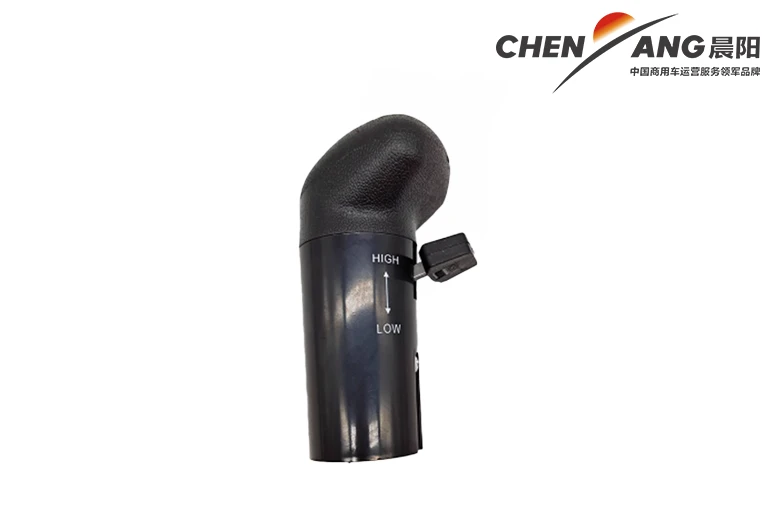transmission oil cooler
Understanding Transmission Oil Coolers Importance and Functionality
In the world of automotive maintenance, the transmission system is one of the most crucial components responsible for ensuring smooth vehicle operation. An integral part of this system is the transmission oil cooler, a device that plays a vital role in managing the temperature of the transmission fluid. Understanding how a transmission oil cooler works and its significance can help vehicle owners maintain their cars effectively and enhance performance.
What is a Transmission Oil Cooler?
A transmission oil cooler is a heat exchanger designed to cool the transmission fluid before it circulates back into the transmission. This device is particularly important in vehicles that tow heavy loads, engage in off-road activities, or operate under high-stress conditions where the transmission can overheat. By keeping the transmission fluid within an optimal temperature range, the oil cooler helps prolong the life of the transmission system and ensure reliable performance.
How Does a Transmission Oil Cooler Work?
The functionality of a transmission oil cooler is relatively straightforward. As the transmission operates, friction and heat are generated, raising the temperature of the transmission fluid. If this fluid becomes too hot, it can degrade, losing its lubricating properties and potentially leading to transmission failure.
The oil cooler is typically located near the front of the vehicle, where it can take advantage of the cooling airflow generated by driving speed. The hot transmission fluid flows through the cooler, where it passes through a series of tubes. Surrounding these tubes is either air or coolant from the vehicle's cooling system. As the hot fluid travels through the tubes, heat is transferred away from the fluid and dissipated into the air or coolant, effectively lowering its temperature before it re-enters the transmission.
The Importance of Transmission Oil Coolers
1. Prevent Overheating One of the primary functions of a transmission oil cooler is to prevent overheating. Excessive heat can drastically reduce the lifespan of transmission fluid and lead to catastrophic failures in the transmission system. A cooler helps maintain appropriate temperatures, ensuring the fluid remains effective in lubricating and protecting the transmission components.
transmission oil cooler

2. Enhance Performance When transmission fluid operates within the desired temperature range, it performs better. Cooler fluid allows for improved hydraulic pressure within the transmission, leading to smoother shifting and better overall performance. This is particularly important for high-performance vehicles or those that frequently tow heavy loads.
3. Increase Longevity By reducing the likelihood of overheating, transmission oil coolers contribute to the longevity of the entire transmission system. Maintaining optimal fluid temperatures helps prevent damage to gears, bearings, and other critical components, thereby extending the life of the transmission and reducing repair costs.
4. Maintain Fluid Consistency Overheating can also result in fluid breakdown, impacting its viscosity and lubrication properties. A transmission oil cooler ensures that the fluid remains consistent in its viscosity, which is vital for efficient transmission operation.
Signs of a Failing Transmission Oil Cooler
Regular maintenance and monitoring are essential to ensure the transmission oil cooler functions correctly. Signs of a failing cooler may include
- Transmission Overheating If the transmission frequently overheats, it could indicate a problem with the oil cooler. - Fluid Leaks Leaking transmission fluid can be a sign of a defective cooler, which may need immediate attention. - Poor Shifting or Slipping If you notice harsh shifts or slipping gears, the transmission may be overheating due to inadequate cooling.
Conclusion
A transmission oil cooler is a crucial component that significantly impacts vehicle performance and longevity. By understanding its function and importance, vehicle owners can take proactive measures to maintain their cars, preventing overheating and ensuring smoother operation. Regular inspections and timely repairs can safeguard the transmission system, making the transmission oil cooler an essential part of automotive care. Whether for everyday driving or demanding conditions, investing in a quality oil cooler is a wise decision for any vehicle owner aiming for reliability and efficiency.
-
Hydraulic Lock Assembly for SHACMAN Truck Parts – Durable & ReliableNewsJul.28,2025
-
SINOTRUK HOWO 84 Electric Dump Truck for Eco-Friendly Heavy HaulingNewsJul.26,2025
-
The Fast 16-Gear Manual Transmission Assembly for Heavy TrucksNewsJul.25,2025
-
Mercedes Benz Actros 1848 42 Tractor Truck for Sale - Reliable PerformanceNewsJul.24,2025
-
High-Quality Water Pump Assembly for Sinotruk Trucks – Durable & ReliableNewsJul.23,2025
-
Premium Truck Engine Antifreeze Coolant Fluid for Heavy Duty VehiclesNewsJul.22,2025
Popular products

























